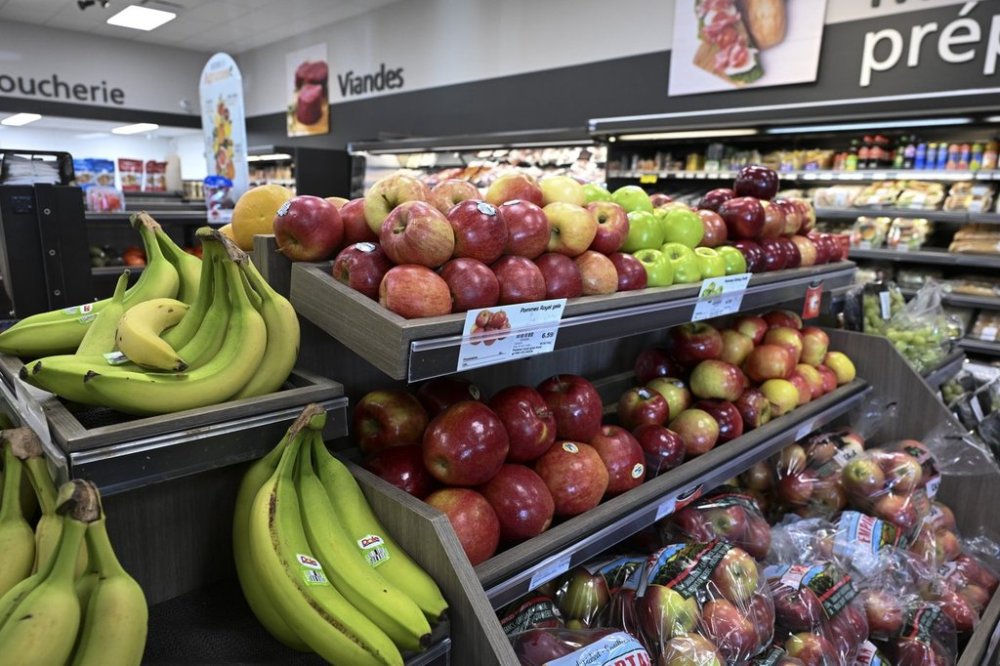Canadians seeking ways to save on groceries as food costs remain top concern: survey
Advertisement
Read this article for free:
or
Already have an account? Log in here »
To continue reading, please subscribe:
Monthly Digital Subscription
$0 for the first 4 weeks*
- Enjoy unlimited reading on winnipegfreepress.com
- Read the E-Edition, our digital replica newspaper
- Access News Break, our award-winning app
- Play interactive puzzles
*No charge for 4 weeks then price increases to the regular rate of $19.00 plus GST every four weeks. Offer available to new and qualified returning subscribers only. Cancel any time.
Monthly Digital Subscription
$4.75/week*
- Enjoy unlimited reading on winnipegfreepress.com
- Read the E-Edition, our digital replica newspaper
- Access News Break, our award-winning app
- Play interactive puzzles
*Billed as $19 plus GST every four weeks. Cancel any time.
To continue reading, please subscribe:
Add Free Press access to your Brandon Sun subscription for only an additional
$1 for the first 4 weeks*
*Your next subscription payment will increase by $1.00 and you will be charged $16.99 plus GST for four weeks. After four weeks, your payment will increase to $23.99 plus GST every four weeks.
Read unlimited articles for free today:
or
Already have an account? Log in here »
A survey of Canadians’ perceptions around food affordability and purchasing behaviours suggests that consumers have changed how they shop, cook and eat in response to rising prices.
The latest edition of the Canadian Food Sentiment Index, released by Dalhousie University’s Agri-Food Analytics Lab in partnership with online data platform Caddle, said food remains the dominant household financial concern for Canadians.
More than four-in-five survey respondents indicated it’s their top expense pressure. While that was down from 84.1 per cent of respondents a year ago, it still far outpaces other day-to-day expense concerns, such as utilities, household items and supplies, housing, transportation and entertainment.

Half of the nearly 3,000 respondents to the survey conducted last month said food costs increased “significantly” over the past year, while just over one-third indicated their food expenses were up “slightly” and close to 12 per cent said they stayed the same.
About 20 per cent of Canadians said they now spend more than $600 per month on food at home, up slightly from the last biannual food sentiment index in the spring, while a combined 46.4 per cent spend between $300 and $600 monthly.
Statistics Canada said earlier this week that prices for food purchased from the grocery store rose 3.4 per cent on an annual basis in October, cooling from four per cent in September.
That deceleration was driven by cooling costs for fresh vegetables and a category that includes mostly processed foods, but bigger price hikes on fresh and frozen chicken moderated the decline.
Growth in grocery costs outpaced the overall annual inflation rate of 2.2 per cent for the month.
Almost half of those surveyed for the food sentiment index indicated they have changed their grocery habits due to food price inflation by seeking out sales and discounts. Around 23 per cent said they tried either using more coupons, shopping online for better prices or going to cheaper stores.
“People are making trade-offs every single day — switching brands, reducing variety, cooking more at home, or delaying purchases altogether,” said report co-author Stacey Taylor.
“The data show a clear shift: affordability is now the lens through which most food decisions are being made.”
Other common cost-cutting efforts included buying fewer non-essential items like ice cream, switching to cheaper brands, and buying fewer premium foods such as meat or fruit.
Canadians also seem to be limiting restaurant and takeout spending to help cope with higher costs, with around one-third of respondents spending less than $50 a month on restaurant food and nearly a quarter spending between $51 and $100.
The report also found that trust in major food retailers continues to erode, with more Canadians feeling disconnected from how prices are set and frustrated by a lack of transparency. Meanwhile, support for Canadian-grown and Canadian-made foods is rising.
“Canadians are adapting, but they’re tired. What we’re seeing in this report is not just frustration with prices, but a deeper concern about fairness, transparency, and the future of our food economy,” said Sylvain Charlebois, director of the Agri-Food Analytics Lab and lead author of the study.
“One of the bright spots is the renewed enthusiasm for Canadian-made products,” he said in a press release.
“Many households see buying local as a way to regain control — supporting farmers, supporting domestic processors and helping strengthen Canada’s food sovereignty.”
This report by The Canadian Press was first published Nov. 20, 2025.

